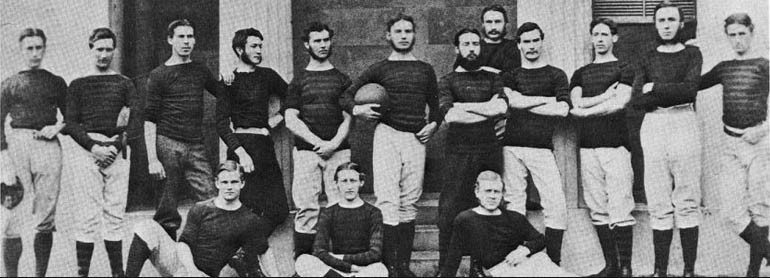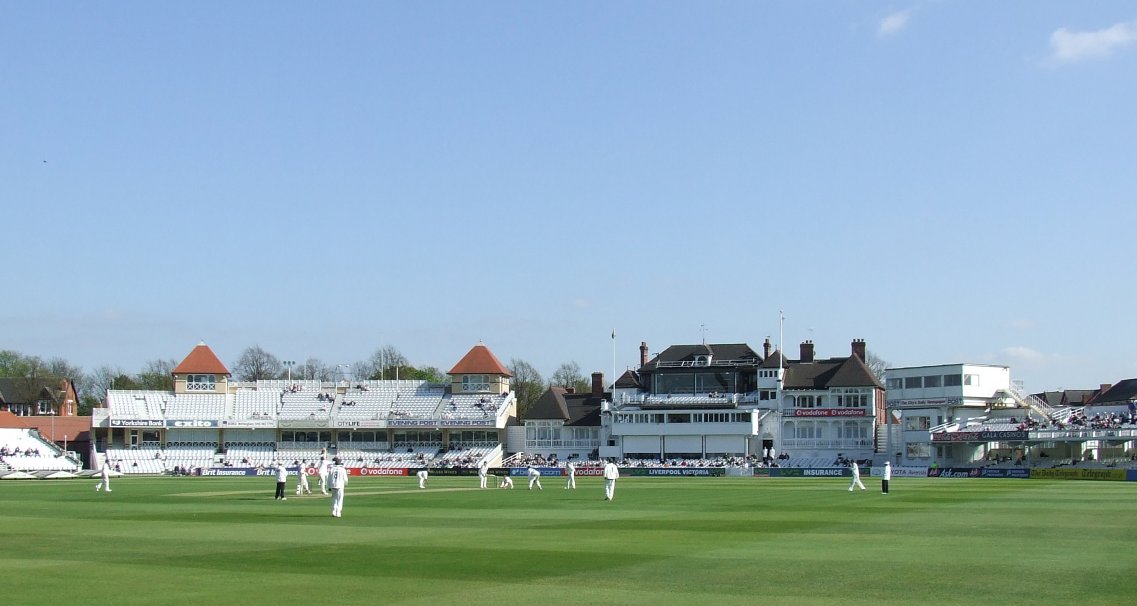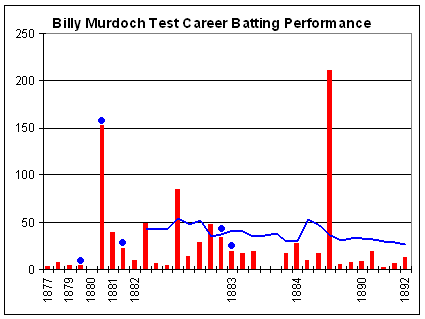|
Thomas Arnold Harvey
Thomas Arnold Harvey (17 April 1878 – 25 December 1966) was an Irish cricketer and Rugby Union player. He was captain of Dublin University Cricket Club in 1902, and while still at Trinity College Dublin (TCD) toured with an Ireland XI. Harvey was also an international hurdler as a student. He later became a Church of Ireland (Anglican) bishop. Cricket A right-handed batsman and right-arm medium pace bowler, he played three times for the Ireland cricket team between 1901 and 1902,CricketEurope Stats Zone profile including two . [...More Info...] [...Related Items...] OR: [Wikipedia] [Google] [Baidu] |
First-class Cricket
First-class cricket, along with List A cricket and Twenty20 cricket, is one of the highest-standard forms of cricket. A first-class match is one of three or more days' scheduled duration between two sides of eleven players each and is officially adjudged to be worthy of the status by virtue of the standard of the competing teams. Matches must allow for the teams to play two innings each, although in practice a team might play only one innings or none at all. The etymology of "first-class cricket" is unknown, but it was used loosely before it acquired official status in 1895, following a meeting of leading English clubs. At a meeting of the Imperial Cricket Conference (ICC) in 1947, it was formally defined on a global basis. A significant omission of the ICC ruling was any attempt to define first-class cricket retrospectively. That has left historians, and especially statisticians, with the problem of how to categorise earlier matches, especially those played in Great Britain be ... [...More Info...] [...Related Items...] OR: [Wikipedia] [Google] [Baidu] |
Cambridge University Cricket Club
Cambridge University Cricket Club, first recorded in 1817, is the representative cricket club for students of the University of Cambridge. Depending on the circumstances of each individual match, the club has always been recognised as holding first-class status. The university played List A cricket in 1972 and 1974 only. It has not played top-level Twenty20 cricket. With some 1,200 members, home matches are played at Fenner's. The club has three men's teams (Blues, Crusaders and the Colleges XI) and one women's team which altogether play nearly 100 days of cricket each season. The inaugural University Match between Cambridge and Oxford University Cricket Club was played in 1827 and the match was the club's sole remaining first class fixture each season until 2020. The club has also operated as part of the Cambridge University Centre of Cricketing Excellence (Cambridge UCCE) which included players from Cambridge University and was Anglia Polytechnic University, now Anglia Rusk ... [...More Info...] [...Related Items...] OR: [Wikipedia] [Google] [Baidu] |
1903 Home Nations Championship
The 1903 Home Nations Championship was the twenty-first series of the rugby union Home Nations Championship. Six matches were played between 10 January and 21 March. It was contested by England, Ireland, Scotland and Wales. Table Results The matches Wales vs. England Wales: John Strand-Jones (Llanelli), Fred Jowett (Swansea), Dan Rees (Swansea), Rhys Gabe (Llanelli), Tom Pearson ( Newport) capt., Dicky Owen (Swansea), Llewellyn Lloyd ( Newport), Jehoida Hodges ( Newport), Will Joseph (Swansea), Will Osborne (Mountain Ash), Arthur Harding (Cardiff), Alfred Brice (Aberavon), David Jones (Treherbert), George Boots ( Newport), George Travers ( Pill Harriers) England: HT Gamlin (Blackheath), JH Miles (Leicester), RH Spooner (Liverpool), JT Taylor (West Hartlepool), T Simpson (Rockcliff), B Oughtred (Hartlepool Rovers) capt., Frank Croft Hulme (Birkenhead Park), G Fraser (Richmond), Vincent Cartwright ( Oxford Uni.), R Bradley (West Hartlepool), J Duthie ( ... [...More Info...] [...Related Items...] OR: [Wikipedia] [Google] [Baidu] |
1900 Home Nations Championship
The 1900 Home Nations Championship was the eighteenth series of the rugby union Home Nations Championship. Six matches were played between 6 January and 17 March. It was contested by England, Ireland, Scotland and Wales. Table Results Scoring system The matches for this season were decided on points scored. A try was worth three points, while converting a kicked goal from the try gave an additional two points. A dropped goal and a goal from mark were both worth four points. Penalty goals were worth three points. The matches England vs. Wales England: Gamlin ( Devonport Albion), SF Coopper (Blackheath), GW Gordon-Smith (Blackheath), AT Brettargh (Liverpool OB), Elliot Nicholson (Birkenhead Park), RHB Cattell (Moseley) capt., GH Marsden (Morley), James Baxter (Birkenhead Park), A Cockerham (Bradford Olicana), Wallace Jarman (Bristol), CT Scott ( Cambridge Uni), FJ Bell ( Northern), Robert William Bell ( Cambridge Uni), S Reynolds (Richmond), W Cobby ... [...More Info...] [...Related Items...] OR: [Wikipedia] [Google] [Baidu] |
1899 Ireland Rugby Union Tour Of Canada
The 1899 Ireland rugby union tour of Canada occurred in October 1899, twenty four years after Ireland's first international. It was Ireland's first ever international tour. It was also the first overseas tour undertaken by any of the home countries as a single entity. Seventeen players were selected to make the journey to Canada but no caps were awarded. Three clubs – Dublin University, Lansdowne and North of Ireland FC – provided fifteen of these players. Many of those who went on the tour had not played, nor did they subsequently play, for Ireland. Many of those who were part of the 1899 Triple Crown side were not able to afford the time or cost of the trip. Ireland often had to field just fourteen players due to injuries. Among those to be injured was James Myles who broke his leg. Myles, who was later elected as an independent TD of East Donegal, had to remain in Canada until December. The rest of the touring party had returned home in November. Ireland won 10 of the 11 ... [...More Info...] [...Related Items...] OR: [Wikipedia] [Google] [Baidu] |
James Myles
James Sproule Myles (1877 – 13 February 1956) was an Irish soldier, politician and rugby union player. Rugby player Myles played rugby for City of Derry and Ireland. In October 1899, together with Arnold Harvey, he was a member of the Ireland team that went on a tour of Canada. This was their first ever overseas tour. While playing, he broke his leg and he had to remain in Canada until December while the rest of the touring party returned home in November. Soldier During World War I, Myles served in the British Army with both the Royal Inniskilling Fusiliers and the Royal Engineers. He won the Military Cross for bravery and reached the rank of Major. Personal life He was among a group of 40 Unionists kidnapped in February 1922. "Though apparently not an Orangeman, Myles was a Prince Mason in a chapter well stocked with Orange luminaries." Politician Myles served as an Independent Teachta Dála (TD) in Dáil Éireann for twenty years. He was elected on his first attempt ... [...More Info...] [...Related Items...] OR: [Wikipedia] [Google] [Baidu] |
Ireland National Rugby Union Team
The Ireland national rugby union team is the men's representative national team for the island of Ireland in rugby union. The team represents both the Republic of Ireland and Northern Ireland. Ireland competes in the annual Six Nations Championship and in the Rugby World Cup. Ireland is one of the four unions that make up the British & Irish Lions – players eligible to play for Ireland are also eligible for the Lions. The Ireland national team dates to 1875, when it played its first international match against England. Ireland reached number 1 in the World Rugby Rankings for the first time in 2019. Eleven former Ireland players have been inducted into the World Rugby Hall of Fame. History Early years: 1875–1900 Dublin University was the first organised rugby football club in Ireland, having been founded in 1854. The club was organised by students who had learnt the game while at public schools in Great Britain. During the third quarter of the nineteenth century, and fo ... [...More Info...] [...Related Items...] OR: [Wikipedia] [Google] [Baidu] |
Monkstown Football Club
Monkstown Football Club is an Irish rugby club based in Dublin, playing in Division 1A of the Leinster League. In addition to the First XV, they also have Second (J2), Third (J3) and Fourth (J4) XV's, a mini rugby section and a Golden Oldies team. History The club was founded in 1883 in Monkstown as the name suggests, but moved to the Sandymount area in 1901 after leasing grounds at Sydney Parade from the Earl of Pembroke. They have always had a military connection, with British Army soldiers among the players. In fact, many of their players were casualties in the Boer War and the First World War, including internationals Ernest Deane, Basil Maclear and Pierce O'Brien-Butler. Since Irish independence many servicemen - soldiers, sailors as well as airmen - have turned out for the club and Leinster provincial teams. The Irish Defence Forces team regularly play their French counterparts at Sydney Parade. Monkstown has hosted a number of international teams over the years, ... [...More Info...] [...Related Items...] OR: [Wikipedia] [Google] [Baidu] |
Dublin University Football Club
Dublin University Football Club (DUFC) is the rugby union club of the University of Dublin and Trinity College, in Dublin, Ireland, which plays in Division 1A of the All-Ireland League. History The first known record of the Club appears under the heading 'Trinity College' in the ''Daily Express'' of 1 December 1855 and is taken to show that it had then been in existence for at least a year: The club had thus been founded by about 1854, and it has a well-documented, continuous history since then, which gives it a strong claim to be considered the world's oldest extant football club of any code. Although Guy's Hospital FC, had been founded in London in 1843, so had existed before DUFC, it later folded up for some years during the nineteenth century. Football in Trinity pre-dates the foundation of the Club itself. A poem by Edward Lysaght shows that it was being played in the College Park in the 1780s. [...More Info...] [...Related Items...] OR: [Wikipedia] [Google] [Baidu] |
Harold Larwood
Harold Larwood, MBE (14 November 1904 – 22 July 1995) was a professional cricketer for Nottinghamshire County Cricket Club and the England cricket team between 1924 and 1938. A right-arm fast bowler who combined unusual speed with great accuracy, he was considered by many commentators to be the finest and the fastest fast bowler of his generation and one of the fastest bowlers of all time. He was the main exponent of the bowling style known as "bodyline", the use of which during the Marylebone Cricket Club (MCC) tour of Australia in 1932–33 caused a furore that brought about a premature and acrimonious end to his international career. A coal miner's son who began working in the mines at the age of 14, Larwood was recommended to Nottinghamshire on the basis of his performances in club cricket, and rapidly acquired a place among the country's leading bowlers. He made his Test debut in 1926, in only his second season in first-class cricket, and was a member of the 1928– ... [...More Info...] [...Related Items...] OR: [Wikipedia] [Google] [Baidu] |
Tibby Cotter
Albert "Tibby" Cotter (3 December 1883 – 31 October 1917) was an Australian cricketer who played in 21 Test matches between 1904 and 1912. He served in World War I with the First Australian Imperial Force and was killed in action in the mounted charge of the 4th Light Horse Brigade at Beersheba in Ottoman Palestine. Family The sixth and youngest son of John Henry Cotter, (1839–1922) and Margaret Hay Cotter (1850–1936), née Pattison, Albert Cotter was born on 3 December 1883 in Sydney. He died in action, at Beersheba on 31 October 1917. One of his brothers, John, had been killed in action, at Broodseinde, Belgium, three weeks earlier, on 4 October 1917. Two other brothers, Arthur Dale (1877–1921), and Edwin (1880–1929) died in railway accidents. Cricketer Fast bowler Although only 5'8" (173 cm) tall—the same height as Harold Larwood—he was arguably the best fast bowler through the first decade of the 20th century, he had a reputation for breaking stumps ... [...More Info...] [...Related Items...] OR: [Wikipedia] [Google] [Baidu] |
Billy Murdoch
William Lloyd Murdoch (18 October 1854 – 18 February 1911) was an Australian cricketer who captained the Australian national side in 16 Test matches between 1880 and 1890. This included four tours of England, one of which, in 1882, gave rise to The Ashes. In 2019 Murdoch was inducted into the Australian Cricket Hall of Fame. Although Victorian-born, Murdoch was raised in Sydney, and played his Australian domestic cricket for New South Wales, making his first-class debut in 1875. His Test debut came in 1877, in what was retrospectively classed as the second Test match to be played. Murdoch began his career as a wicket-keeper, but at Test level kept wicket only once, with Jack Blackham being preferred. As a batsman, Murdoch scored both the first double century in Test cricket (211 against England in 1884) and the first triple century in Australian domestic cricket (321 against Victoria in 1882). In later years, he settled in England, playing county cricket for Sussex (18 ... [...More Info...] [...Related Items...] OR: [Wikipedia] [Google] [Baidu] |





